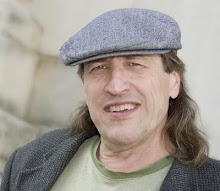 April 2, 1981
April 2, 1981
The peace draws me here.
And the glitter of sun on the river top – though it is not only water that glitters with the morning sun: broken glass does on the dock, giving unnatural shades to a place decked in brown and bits of green.
Wood and plastic floats down street from still melting places nearer to Lake Passaic.
This is a river that coils across the landscape so that I cross it four maybe five times traveling one highway going west.
I have lived through the floods of Pine Brook with me and Frank Quackenbush on the back of an airfreight container lid, poking up way up stream like Huck Finn and Jim, seeking freedom from a life of labor over someone’s back lawn, tall pokes poking holes in the ground so that irate office owners yell for us to stop.
In 1972, it rained for three straight days in a down pour so fierce the Passaic River rose over its banks in places it had never flooded before, filling the curved McBride Avenue in West Paterson and Totowa so that only boats could go where the cars once did.
But this is a dry year and I walk along the stony sides of the river in Garfield in Garfield where the water is low even in Spring, exposing all the flaws, the weed-ridden shopping carts, the abandoned tires, and protruding spikes of glass.
Power cables of some sort run down the deepest point of the river like ribs I do not normally see until the river reaches starvation.
This is a tough time.
The homeless set up a village behind the church on Wall Street in that wooden area bordering the railroad bridge and Monroe Street. The dirty men fish by day and shiver by night, their brown and stained faces illuminated by the fires they build in old oil drums.
They remind me of the hobo camps my grandfather told me used to inhabit these same places during those years when our family too took refuge in houses he built but could not sell, moving out to live with his mother when even that became too much a burden.
The river is so low even fishing is sparse and I see the men cooking baby fish I know won’t satisfy their hunger, many local merchants complaining about the panhandling, blaming the stench of the low river on the dirty men – while the chemical plant on the Garfield side continues to spew its slime into the waterway, feeding poising to the fish that the dirty men eat.
I have walked through this camp during the daylight, seeing some of the weaker, ill men, lying exhausted on brown-stained mattresses they have dragged out of abandoned houses elsewhere in Passaic.

Some mumble about jobs they can’t get, or never had, complaining about the closing of the mills and the companies who have fled to the Carolinas to avoid the unions, jobs they can’t or won’t chase, and live by the river until the city or state cleans their villages out.
I’ve seen some hunting the ducks and geese which flock to this part of the shrunken, green-coated stream, each also seeking salvation from a river near to death itself, while a new president far away in Washington DC ponders doing away with the Environmental Protection agency, claiming there is no need for it.









No comments:
Post a Comment